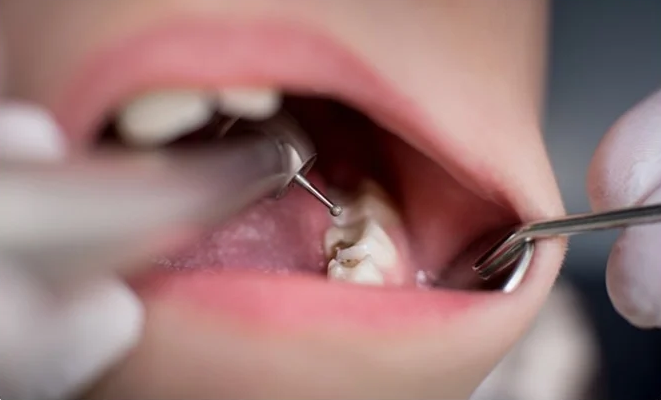Prime
False teeth: Should they be extracted or ignored?

What you need to know:
No sooner had the baby switched to solid foods at six months than we received a call from the family that their baby had developed ebinyo/ebiino
Six months back, a friend of ours gave birth to a baby. Just like any other parents, the birth of their baby brought a lot of joy to the family.
No sooner had the baby switched to solid foods at six months than we received a call from the family that their baby had developed ebinyo/ebiino.
The family added that they had informed their relatives and other friends about their baby developing ebiino/ebinyo, to which, they were advised to visit a traditional elderly person in a certain nearby village who extracts them.
Such advice became a big concern to us as basawo (health workers) friends to the family. False teeth extraction remains a public health problem and awareness needs to be done intensively to reduce this practice to zero.
In developing countries, especially Africa, traditional methods of treating illnesses are still practiced.
These traditional methods may not be scientifically explainable, yet many societies continue to apply them to prevent and treat diseases.
The World Health Organisation reports that 80 percent of African populations use traditional medicine for cultural and economic reasons as their primary source of care. Research shows that some traditional methods of treatment may be injurious such as the extraction of ebiino/ebinyo.
Ebinyo/ebiino are raised gums in the canine areas, which are soft, and not fully mineralised tooth buds. The raised areas on the infant’s gum are identified and then using a sharp instrument, the soft un-mineralised tooth is extracted as the “offending worm” by non-formally trained personnel.
The range of rudimentary that may be used include bicycle spokes, hot needles, pointed knives, nails, and other sharp objects.
In many African cultures, this procedure is carried out in the belief that it will prevent or treat symptoms such as fevers or diarrhoea seen in an infant.
The community also hoped that the removal of what is described as “worms” or “maggots” would relieve or prevent childhood diseases, hence preventing death.
Available evidence shows that false teeth extraction results in consequences such as infections (septicaemia), fatalities of affected children, missing adjacent primary and permanent teeth ,especially canines and misalignment.
Despite the known consequences and increasing literacy levels, the practice of ebinyo extraction continues and in Uganda it is mostly practiced in rural areas.
The public should know that ebinyo/ebiino is not a cause for concern. However mothers are advised to improve hygiene, continue breastfeeding and follow the immunisation schedule.
Children mostly under the age of five years are prone to childhood illnesses and most deaths occur during this period.
Research shows that false teeth extraction could be among the root cause of illnesses mostly among infants between four to eight months.
However, it is not given priority in most health facility settings during history taking.
In the struggle of reducing mortality rate under five, the emphasis is put most on encouraging mothers to take their children to a nearby health facility when they are not well.
Additionally, some injurious cultural beliefs and practices performed like false teeth extraction, among others should be given attention and not just ignored.
Victoria Nabagereka; BScN Nurse working with Mbarara Regional Referral Hospital and Lilian Nuwabaine Luyima; BSc Nurse & MSN-Midwife & Women’s’ Health Specialist.




